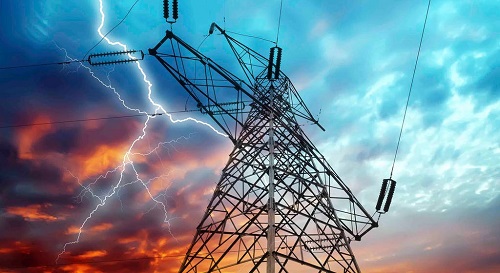This post has already been read 1481 times!
• Nigeria’s ease of doing business profile may drop
Barely 24 hours after generating companies warned of idle capacity and mounting debts, Nigeria’s electricity grid, yesterday, plunged for the umpteenth time, compounding the woes of many businesses and pushing them towards higher energy costs, going by the present cost of diesel.
With limited electricity supply from the grid, many businesses are forced to embrace alternative energy that has become expensive as a result of rising global prices of crude oil.
Indeed, the situation is compounding the woes of the country and many Nigerians, with implications for higher production costs and living expenses.
A direct flop to the country’s most trumpeted improvement in Ease of Doing Business (EDB), the national grip, which had remained epileptic with a mere 2,000 megawatts of electricity in the past month finally collapsed at about 10:40 a.m. yesterday, leaving the grid without any energy.
While Small and Medium Scales Enterprises that survive mainly on the premium motor spirit are struggling with the scarcity of petrol subsidies, bigger organisations that depend on diesel generators now have to buy the product for above N720 per litre.
The power generating companies in the country confirmed on Sunday that 14 power stations are idle due to grid-related challenges and the inability of the government to pay for generated electricity.
While the issue was still making the waves in the early hours of Monday, the national grid reportedly crashed, sending the 11 distribution companies, which supply the 36 states and Federal Capital Territory (FCT) out of supply.
As at 2:40 p.m. on Monday, multiple sources across the distribution companies told The Guardian that although there were reports that the grid was being restored, some of them were yet to receive energy load.
Head, Corporate Communications, Enugu Electricity Distribution Plc (EEDC) Emeka Ezeh, had issued a note to consumers, stating that the South East has been without electricity due to a general system collapse.
The Abuja Electricity Distribution Company (AEDC) had equally issued a note linking total darkness in Abuja and other north-central states to the grid collapse.
The note from the company reads, “Dear esteemed customer, we experienced a general outage across the AEDC network at 10:40 a.m. today due to a system collapse which occurred on the national grid. Appropriate measures are now being taken to restore normal supply as quickly as possible. We sincerely apologise for the inconvenience.”
Although the Federal Government-owned Transmission Company of Nigeria (TCN), which manages the grid had at some point said grid collapse happens globally, the collapse of power supply, each time it occurs, comes with a huge economic loss for consumers, especially commercial entities.
Energy expert at the University of Ibadan, Prof. Adeola Adenikinju stated that the prevailing development would drastically affect businesses and households.
The founder for Nextier, Patrick Okigbo in his contribution, insisted that years of warning for the government to do the right thing in the energy sector is now hurting the system.



